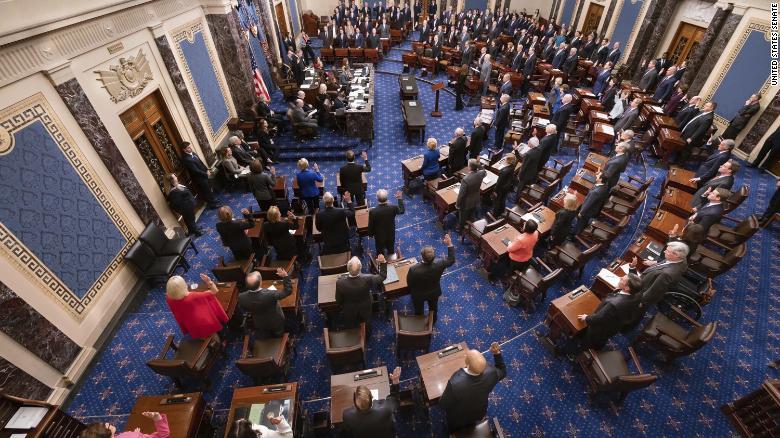One of the first things taught in any U.S. government class is the separation of powers. It is a foundational principle of the American system of government.
However, the last few weeks of President Trump’s impeachment process call into question how real that separation is in practice.
The debate over impeachment all started when information was leaked about Trump’s foreign policy towards Ukraine being seemly built around personal political gain in the upcoming election rather than national interest or the common good. After learning about a secret phone call via the media and internal government investigations, the House of Representatives started an impeachment inquiry into the president’s relationship with Ukraine.
Throughout this inquiry, the House gathered relevant witnesses to obtain more facts about the specifics of that relationship and president’s alleged wrongdoing. The House was able to call several witnesses, but all the high-ranking members of the White House, such as acting Chief of Staff Mick Mulvaney, dodged the call to testify.
After weeks of fact-finding, the House passed two articles of impeachment for abuse of power and obstruction of Congress against the president.
Those official articles were then sent over to the Senate, where they would be argued over in a trial. Several members of the House were also sent to the Senate to act as the prosecution in this trial while the president was defended by his personal attorneys.
Despite being called a trial, and in many respects being structured like one, what has gone on the Senate simply is not normal.
Typical trials have a pretty well-defined structure. There is pre-trial business, such as picking the jury (which in this case is the entire Senate), and once that is done, the prosecution and defense give opening statements. Afterwards, witnesses give their testimony and evidence is examined, which makes up the core of the trial. The trial is then ended with closing arguments by both sides followed by a verdict from the jury.
In the Senate, some things are similar. There were opening statements from both sides and closing arguments from both sides as well. What the Senate trial has intentionally lacked is new witness testimony. Without calling witnesses, it is difficult to call what has happened a true, legitimate trial.
This makes it especially frustrating when many important potential witnesses, like former national security advisor John Bolton, are practically publicly displaying the information they have about the president’s dealings with Ukraine. Despite this, those witnesses are simply ignored by the Republican-controlled Senate because of the possible damage their testimony might do the president and his party. This is shameful.
Partisanship is a strong force that everyone feels to some degree, but this trial has shown how the party is more important to a majority of senators than their constitutional duty to act as a serious jury. It is expected that not everyone will agree on policy, but proper oversight and fair process shouldn’t be a position that is seen as partisan.
Looking back at it all, one can wonder what the point of this trial even is.
If anything, it is a clear signal of a problem facing people on the local, state and national levels. There is a culture present in the political system that goes against fair processes and proper oversight, and it’s a culture that has been present in institutions on all levels. It has been seen in state-level politics in the last few years. It has even been present in UMKC in the past as well. This culture has ramifications for everyone in how we navigate our schools, communities and our very lives.
Proper leadership is needed to push back against this destructive trend. Sadly, the lack of that leadership in Congress is apparent and hopefully will change for the better in time.
bmh6dw@mail.umkc.edu








